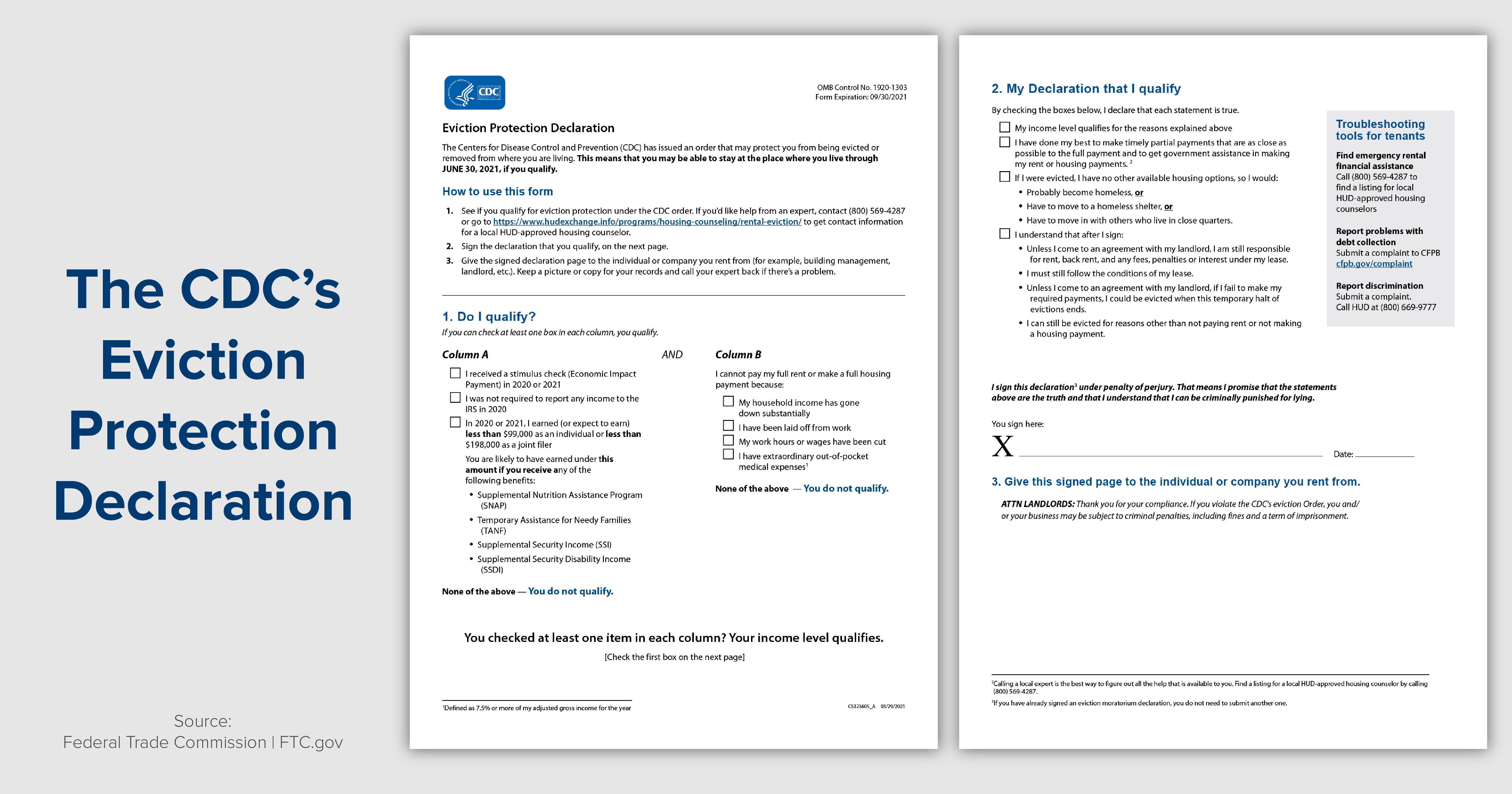Lots of people are having difficulty paying their rent due to the pandemic. But today, the Centers for Disease Control (CDC) released an eviction moratorium order. It protects people from being evicted for not paying their rent if they complete a declaration form and give it to their landlord. This protection lasted until August 26, 2021 for renters in counties where COVID cases are rapidly spreading.
If you qualify for this help, fill out and sign a declaration form (available in both English, Spanish and other languages) and give it to your landlord. If you need help understanding whether you qualify, the Housing and Urban Development has a list of housing counselors in your area who can answer your questions. And whether or not you qualify, it might be worth finding out more about rental assistance programs. There may be local programs that offer rental assistance and other help.
If landlords violate the CDC’s order, they can be subject to fines and even criminal penalties. So if things aren’t going the way you think they should with your landlord, you may be able to get legal help. Check for state or local protections for renters. And if you’re worried about being evicted, even with this moratorium in place, tell your state’s attorney general.
Get more information about what to do if your finances have been affected by the pandemic.
Note: This blog was updated on September 2, 2021 with the date the moratorium ended.

